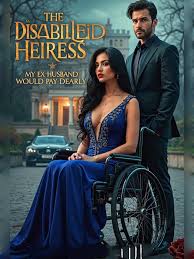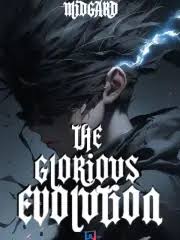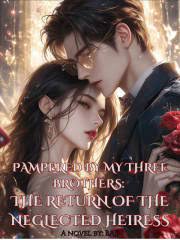The Story in 3 Sentences
Cora, a wealthy heiress who faked disability and poverty to test her husband’s love, planned to reveal her truth—only to find him betraying her on their wedding bed.
Once the architect of his rise, she becomes the silent force behind his downfall, wielding her intelligence and resources not to build him up, but to tear him apart.
This is a romance turned reckoning—where love curdles into vengeance, and a woman once unseen emerges with power no one can ignore.
Why It Stands Out
1. A Heroine Who Rewrites Her Role
Cora isn’t waiting to be saved. She’s the one doing the saving—strategically, silently, and successfully. While the world sees a fragile heiress confined by her condition, she sees opportunities. She doesn’t demand the spotlight. She controls the game from the shadows. Her disability is never ignored—but it’s never her defining trait. Her mind is her weapon, her loyalty her compass.
2. Love as Mutual Elevation
This isn’t a savior complex in reverse. It’s partnership built on quiet devotion. Cora doesn’t “fix” her husband, nor does he “rescue” her. They rise together. She funds his ventures, guides his moves, defends him from elite scorn. He honors her trust, protects her name, and refuses to forget who built his empire. Their love isn’t in grand gestures—it’s in loyalty when others turn away, in standing side by side when the world tries to divide them.
3. Social Critique Woven Into Drama
The novel doesn’t shy from class prejudice and ableism. Cora’s family sees her marriage as a disgrace. The elite mock her choice. “How can a woman who can’t walk unaided manage a household—let alone a man’s career?” But with every success her husband achieves, the narrative dismantles those assumptions. It’s not about proving she’s “normal.” It’s about proving she’s capable—on her own terms.
Characters That Leave a Mark
There’s Cora — strong-willed, deeply empathetic, and fiercely intelligent. She doesn’t rage against her limits; she works around them. Whether confined to a study or a drawing room, she turns it into a command center. Her strength isn’t in defiance, but in persistence. “They said I couldn’t build a future. I built two.”
Then there’s her Husband — not a prince in disguise, but a man of quiet potential given a chance. He begins as humble, grateful, and loyal. His arc isn’t about whether he can betray her, but whether the world will tempt him to. That uncertainty keeps the romance grounded and real.
And the Family — some oppose Cora out of genuine concern, others out of shame or greed. Their skepticism isn’t cartoonish; it’s systemic. But their eventual silence, or reluctant respect, speaks volumes when her husband rises beyond their reach.
The Flaws Fans Debate
Some readers feel the husband’s rise is too smooth—few real setbacks after Cora intervenes.
The disability aspect, while handled with care, could delve deeper into daily challenges beyond mobility.
Secondary characters, especially rivals, sometimes lack complexity—existing mainly to underestimate the couple.
Must-Experience Arcs
Ch. 1–50: The Reckoning & New Beginnings – The story begins with Cora facing the aftermath of her ex-husband’s betrayal, while the events of their secret marriage are revealed as backstory.
Ch. 75–120: The First Triumph – Her husband wins a major business deal—orchestrated by Cora. The elite begin to notice.
Ch. 120–164: The Betrayal & Public Revelation – A trusted ally leaks her involvement, threatening to paint her as a manipulator. Her husband publicly credits her, declaring, “Every victory is hers,” cementing their partnership.
Killer Quotes
“They said I couldn’t build a future. I built two.”
“Love isn’t measured in steps walked, but in hearts lifted.”
“She was called weak. But empires were built on her quiet orders.”
“No title, no throne—just a woman who loved fiercely and changed everything.”
Cultural Impact
Has become a quiet landmark in romance fiction for its dignified portrayal of disability and agency.
Celebrated in reader communities for showing disability without tragedy, strength without superhuman feats.
Frequently recommended in lists of “quiet power” heroines and “anti-golden-couple” romances.
Sparked discussions about representation in romance novels and the importance of authentic character development.
Final Verdict
Start Here If You Want:
A romance where love is quiet, deep, and transformative
A heroine who leads from behind the scenes
A story that challenges class and ableist assumptions without preaching
Slow-burn emotional development with strategic plotting
Study If You Love:
Slow-burn emotional loyalty
Partnerships of mutual upliftment
Female leads who win through strategy, not spectacle
Complex family dynamics and social commentary
Stories that balance romance with character growth
Avoid If You Prefer:
High-stakes action or dramatic confrontations
Heroines who reject romance for independence
Stories where disability is used for pity or inspiration porn
Fast-paced plot developments
Alpha male romance tropes





